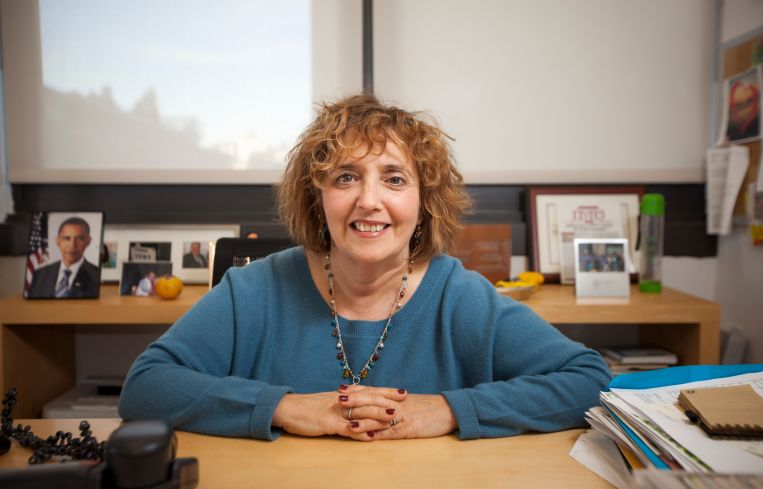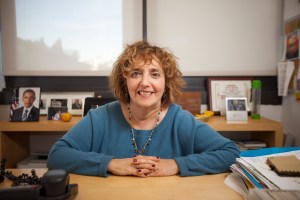Helping Hudson: Ellen Baer on Transforming Hudson Square
By Gus Delaporte December 3, 2013 9:00 am
reprints
Last month, the Hudson Square Connection, the Hudson Square neighborhood’s business improvement district, announced it was teaming up with the New York City Economic Development Corporation and the New York City Council on a $27 million streetscape improvement plan. The move is the latest step in transforming the once industrial hub of the city’s printing industry into a vibrant 24/7 community. The neighborhood, home to a daytime population of approximately 60,000, slows down dramatically once the lights go off at night. But that’s set to change. Recently rezoned, Hudson Square will soon be redeveloped to capture Downtown Manhattan’s booming residential growth. With the likes of Trinity Real Estate, Edward Minskoff, Beacon Capital and Jack Resnick & Sons already involved in developments in the neighborhood, it’s all happening in Hudson Square. Ellen Baer, president of Hudson Square Connection, spoke with The Commercial Observer last week about how the streetscape improvement plan and rezoning fit together and the vision for Hudson Square’s future.

Hudson Square Connection recently announced a $27 million investment in streetscape improvement around the Hudson Square neighborhood. What is planned?
The overall theme is creating a sustainable neighborhood out of a formerly industrial area. This neighborhood used to be printing presses, and there hasn’t been any significant infrastructure work done here for 80 years. Today, there is daytime population of 60,000—the young digerati, I call them—and the outdoor space didn’t match that community.
We’re trying to take a place meant for trucks and make it a place for people. The people here—the young, innovative types—have sustainability in their DNA, and we’re very conscious of making the neighborhood match that. Specifically, we are planning to add 300 trees, permeable pavement and new open space. We want to make Spring Street our Main Street.
What’s the timeline?
The first 30 trees are in the ground, and some of the street furniture is out there. New lights around Spring Street will be out this year, and we’re starting an open-space design on Spring Street this year. We’re starting now and hope to have a significant amount completed within five years.
You mentioned a desire to make Spring Street Hudson Square’s Main Street. Could you elaborate?
Spring Street extends to the river, but when you think about Spring, in most people’s consciousness, it starts east of Sixth Avenue, and we want to extend that energy to the Hudson. We envision it as a place where people will walk and shop and become the place that weaves Hudson Square together. We want it to be the center of activity, because we need better connectivity. Despite being among the most famous neighborhoods in the world—Soho, Tribeca—Hudson Square hasn’t been connected, and Spring Street will be the spine.
How important was it to get the involvement from the EDC and city?
One hundred percent of what the BID is doing is on city property, so it is essential the city be our partner. This is a true public-private partnership.
Hudson Square was recently rezoned to increase residential development. How does the improvement play into that?
All of this is of apiece. When I talk about sustainability, it’s not just environmental—it’s economic, it’s social.
Before the rezoning, Hudson Square was so predominantly commercial it almost wasn’t like a Manhattan neighborhood. You need to have a 24/7 presence, so having the residential component is part of bringing the neighborhood into that zone. It’s all of apiece—the rezoning, the streetscape improvement.


